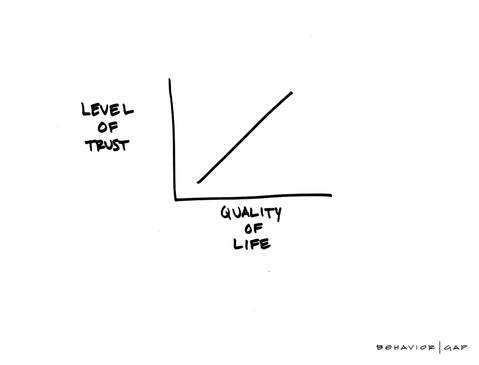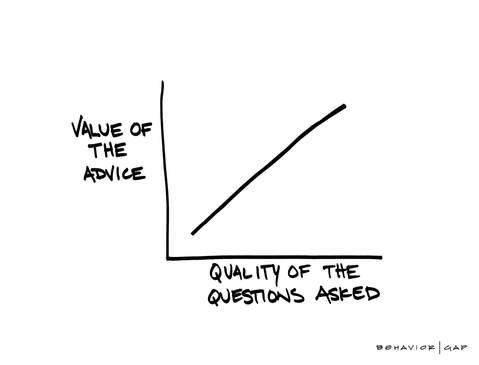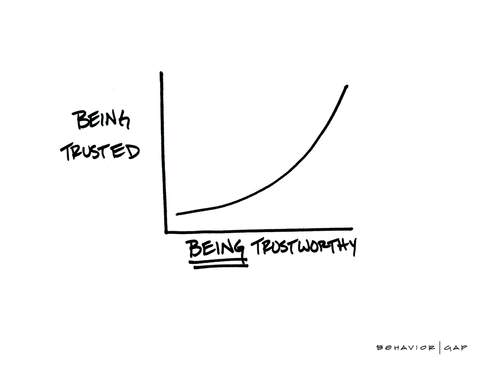In this three-part audio series, I want to introduce a relatively narrow and simple, but insanely powerful, concept. It is an idea I’ve been working on for over a decade. Throughout this three-part audio series, I’m encouraging you to explore what trust means alongside me.
We’ll examine trust and three ways to look at it:
- Treating Trust as an Asset
- Trust on an Individual Scale
- Building Trust at Scale

Let me start by making an argument that trust is the single most valuable asset any real financial advisor has—the trust of your current clients, your future clients, your community, collectively as a society of real financial advisors, and then expanding to the trust of the world.
Here’s why I think it’s the most valuable asset: Just for a minute, I want you to take that asset away. Let’s say you did something tomorrow to lose the trust of your current clients, your future clients, your community, or collectively the world. If you lost that asset, what would you have left?
I don’t think we have to argue that you would have nothing, right? Sure you can rebuild, of course, but at that moment, you would have nothing.
That’s why I make the argument that trust is the most valuable asset any real financial advisor has. It’s fascinating to think about that because it doesn’t really show up on a balance sheet. But it would do us all well to think that way. What would it be if trust showed up on your balance sheet? What does it look like? What does it even mean to have trust as an asset?
As we look at trust on an individual level, I want to start by saying I don’t believe that trust is a function of the quantity of time you spend with somebody, but more a function of the quality of the experience. We can spend a lot of time with someone, and depending on the nature of the experience it could actually lead us not to trust them.
On the flip-side of that, we could spend a brief amount of time with somebody, and we walk away thinking, “Wow, I really trust that person.”
What’s the difference?

The difference is the quality of the experience. I think to a considerable degree, as it applies to our jobs as real financial advisors, that is a function of the quality of the questions you ask.
My friend and mentor John Bowen used to say that people will judge you by the quality of the questions you ask. I would contend the fastest way to build trust as an asset on an individual level is to ask really good questions and listen. It all comes down to treating somebody like you would like to be treated—ask good questions and then listen carefully to what they tell you with empathy.
We’re not doing this because it’s a sales technique. We’re doing it because it’s the right thing to do. We care about our profession and we care about our clients. If trust is the single most valuable asset we have, the way to build it on an individual level is to practice being trustworthy.
Be intensely curious. Go into the discussion curious about the other person.
While trust on an individual level is valuable to practice, one of the things I’ve been thinking about for over a decade is this idea of trust at scale. How do you do trust at scale? To me, that is what we’re trying to capture.
To scale trust, I would encourage us to build a trust asset. What if trust is something that could even show up on your balance sheet?
For me, the simplest way to think about trust is an email list. There is a collection of people that have given me permission to communicate with them. I send them relevant, and hopefully, valuable information to help them do a better job. That list, in a very large and in a very real sense, is the most valuable asset I have. Tens of thousands of people have raised their hands and said, “Hey, you can communicate with me!” It’s the single most valuable asset I have, and so I try to be really careful about never doing anything to abuse that trust. They’ve given me permission to take a little bit of their attention.

In today’s world, I would argue that giving someone your attention is one of the most valuable things to give. I don’t take it lightly that people have given me permission to take a little bit of the attention they have each day.
An example of trust at scale is when a collection of people give you permission to communicate with them again. They’ve essentially raised their hand and said, “Hey, I’d like to hear from you again.” Real financial advisors can start to build trust at scale in the form of a simple email list.
Sending relevant, timely, and valuable information to people who trust you doesn’t cost anything but a little bit of your time. I would make the argument that it might be the most valuable thing you could invest your time in. You begin to build a trust asset that is prime for scale—permission to communicate with people that have given you permission to do so.
. . .